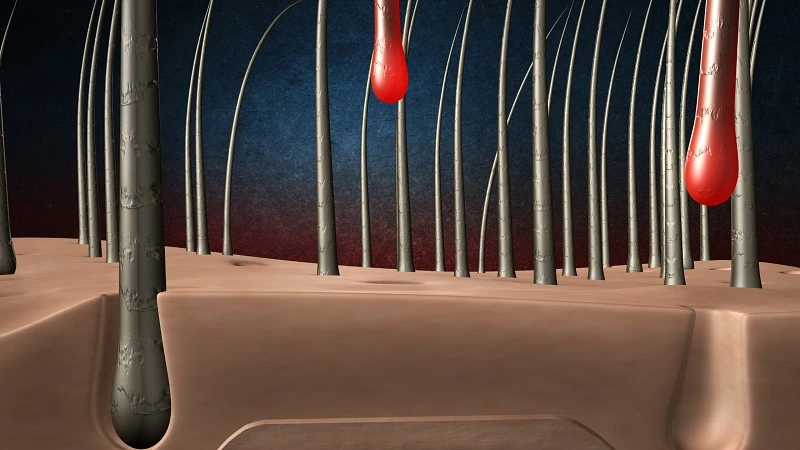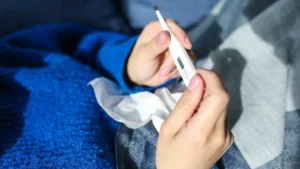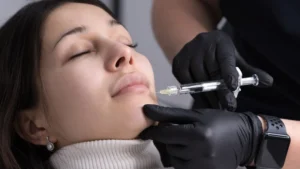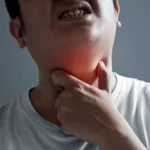Menopausal hair loss is a common concern for many women as they go through the natural process of aging. This type of hair loss is caused by hormonal changes that occur during menopause, leading to thinning or loss of hair on the scalp. Is menopausal hair loss permanent? It can be a difficult and emotional experience for women, as hair is often seen as a symbol of youth and beauty.
In this article, we will discuss the causes and risk factors of menopausal hair loss, as well as treatment options and strategies for coping with this condition. It’s important for women to understand that menopausal hair loss is not permanent, and with the right approach, it can be managed and treated effectively.
The Science Behind Menopausal Hair Loss
During menopause, the levels of estrogen and progesterone in a woman’s body decrease, leading to a number of physical and emotional changes. One of the most visible changes is menopausal hair loss. Estrogen plays a crucial role in the growth and maintenance of hair, and a decrease in estrogen levels can disrupt the normal hair growth cycle.
The hair growth cycle has three phases:
- Anagen (growth phase)
- Catagen (transitional phase)
- Telogen (resting phase)
During menopause, more hair follicles enter the resting phase, and fewer enter the growth phase. As a result, the hair on the scalp becomes thinner and less dense. Additionally, the hair that does grow may be weaker and more prone to breakage.

Another factor that contributes to menopausal hair loss is an increase in androgen levels. Androgens are hormones that are present in both men and women but are typically more prevalent in men. In women, an increase in androgen levels can lead to hair loss on the scalp and an increase in hair growth on other parts of the body (such as the face and chest).
Overall, menopausal hair loss is caused by a complex interplay of hormonal changes and genetic factors. It is not a permanent condition, and with the right treatment, it can be effectively managed and treated.
Is Menopausal Hair Loss Permanent?
Most women experience hair loss during and after menopause. The most common type of hair loss is called female pattern baldness, which affects 50-75% of women over the age of 50. This type of hair loss is caused by a decrease in the number of hairs on the scalp, which may be due to changes in hormones, genetics, or aging.
While menopause can cause temporary hair loss, permanent hair loss is more likely if you have a related medical condition such as PCOS (polycystic ovary syndrome), thyroid problems, or Klinefelter’s syndrome. In some cases, male pattern baldness may also be hereditary. If you are experiencing significant hair loss and are not sure if it is due to menopause, consult your doctor for further evaluation.
Treatment Options
Medications
- Hormone replacement therapy (HRT) is a common treatment option for menopausal hair loss. HRT can help to restore estrogen levels, which can promote hair growth and prevent hair loss.
- Oral contraceptives can also be used to regulate hormone levels and prevent hair loss.
Topical treatments
- Minoxidil is a medication that is applied to the scalp to stimulate hair growth. It is available over the counter and can be used to treat both male and female pattern hair loss.
- Finasteride is a medication that is used to treat male pattern hair loss. It is not approved for use in women, and its use is not recommended in menopausal women.
Natural Remedies
- Saw palmetto is an herbal remedy that is believed to inhibit the production of DHT, a hormone that is linked to hair loss.
- Other natural remedies that are commonly used to treat hair loss include biotin, iron, and zinc.
Lifestyle changes
- Reducing stress through exercise, meditation, or yoga can help to promote hair growth and prevent hair loss.
- Eating a healthy diet that is rich in vitamins and minerals can also help to promote hair growth and prevent hair loss.
it’s important to be patient as hair regrowth can take time and it’s not an overnight process.
Coping with Menopausal Hair Loss
Menopausal hair loss can be an emotionally difficult experience for many women. Hair is often seen as a symbol of youth and beauty, and losing it can be associated with a loss of self-esteem and confidence. It’s natural to feel upset or even depressed about the changes in your appearance, but it’s important to remember that hair loss is a common experience and there are ways to manage it.
Here are a few strategies for coping with menopausal hair loss:
- Talk to someone: Share your feelings with a friend or family member, or consider seeing a therapist or counselor. Talking to someone who understands can help you to feel less alone and more supported.
- Experiment with hairstyles: Try different hairstyles to find one that makes you feel comfortable and confident. Short hair, for example, can be a great option for women who are experiencing hair loss.
- Be patient: Remember that hair regrowth can take time. Be patient and give your treatment plan time to work.
- Embrace your new look: Instead of focusing on what you’ve lost, try to focus on what you still have. Embrace your new look and find ways to make it work for you.
- Take care of yourself: Maintaining a healthy lifestyle and eating a balanced diet can help to promote hair growth and prevent hair loss. Also, reducing stress can help to improve hair growth.
Overall, coping with menopausal hair loss can be a difficult experience, but it is important to remember that it is not permanent, and with the right approach, it can be effectively managed. It’s important to seek support and professional help and not to be hard on yourself.
Conclusion
In conclusion, menopausal hair loss is a common concern for many women as they go through the natural process of aging. It is caused by hormonal changes that occur during menopause, leading to thinning or loss of hair on the scalp. It can be a difficult and emotional experience for women, but it’s important to remember that it is not a permanent condition.
With the right approach, it can be effectively managed and treated with medications, topical treatments, natural remedies, and lifestyle changes. It’s important to seek medical advice and treatment for menopausal hair loss and to find ways to cope with this condition emotionally, as it can affect self-esteem and confidence. Women should be encouraged to take control of their hair loss and to find ways to manage it. Remember, hair loss is a common experience, and it’s important to be patient, seek professional help, and not be hard on yourself.







